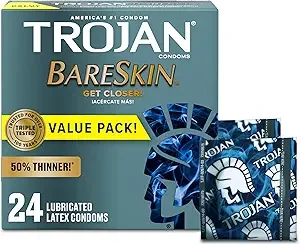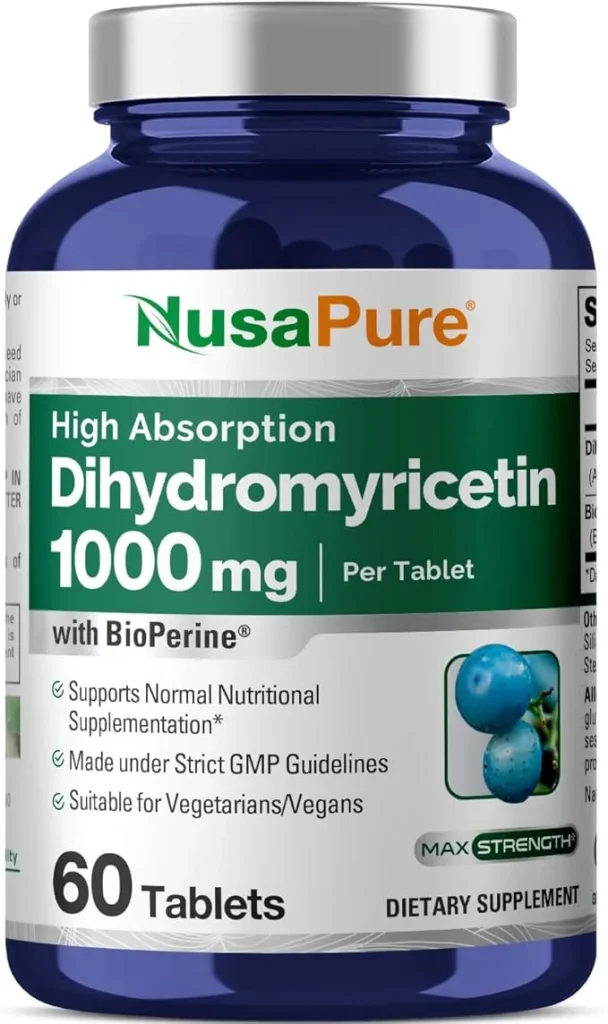How to last longer in bed
How to last longer in bed. When it comes to partner sex, there are a lot of areas where doubt can creep in. One common topic, especially for people with penises, is lasting long enough in bed. You may just want to increase how long your sexual encounters last.

Or maybe you experience premature ejaculation, which causes you to climax faster than you’d like. Either way, the following tips and tricks may help you enjoy a longer sexual encounter.
Biofeedback
Biofeedback is a process to retrain your brain and is used in a few different therapeutic areas. When it comes to premature ejaculation, biofeedback involves measuring electrical signals in the brain during masturbation or other forms of stimulation.
If you want to try biofeedback, you’ll need to visit a physical therapist or doctor’s office that specializes in or has experience with the technique. They will use the measurements to help guide you in performing visualizations, exercises, or other techniques to help you last longer during sex.
Dr. Philip Werthman, urologist and director of the Center for Male Reproductive Medicine and Vasectomy Reversal in Los Angeles, CA, says this is a viable solution for some people.
Edging
Edging is the non-medical version of biofeedback. With edging, you masturbate to bring yourself to just about ejaculation (or the “edge”) and then stop all stimulating activity. The idea is for you to become comfortable and knowledgeable about your sexual arousal so you can prevent unintended ejaculation. Edging may also enhance your sexual experience once you do ejaculate.
Why Can’t I Last Longer in Bed?
You may find it difficult to last as long as you would like during sex due to:
- premature ejaculation, where you regularly ejaculate sooner than you or your partner would like
- erectile dysfunction, where you cannot get or keep an erection for long enough to have penetrative sex
These may be linked to factors such as:
- performance anxiety, stress, and depression
- emotional trauma or a history of sexual abuse
- thyroid or prostate problems, which can affect your ability to have sex
- cardiovascular problems like high blood pressure and heart disease
- neurological conditions like MS or a stroke
- hormonal problems like low testosterone levels
How long am I supposed to last in bed?
How to last longer in bed. Research into how long men last in bed has been limited and often focuses on heterosexual couples. One study of heterosexual couples in 2005 found that the average time between penetration and male ejaculation was 5.4 minutes.
About Premature Ejaculation
Premature ejaculation is a condition that affects how long you last in bed, causing you to orgasm more quickly than you or your partner would like.
Premature ejaculation is defined as ejaculation within 1 minute of intercourse starting, and it is estimated that it affects around 30% of the male population.
There are 2 types of premature ejaculation:
- primary premature ejaculation, where you have always experienced this
- secondary premature ejaculation (or ‘acquired premature ejaculation’), where you have only recently begun to experience this
There are many reasons why you may ejaculate more quickly than you want to. How you and your doctor treat your premature ejaculation depends on what is causing it.
Psychological factors which can cause premature ejaculation include:
- relationship problems
- performance anxiety
- stress
- depression
- conditioning around ejaculation resulting from sexual abuse, strict beliefs about sex, or early sexual behaviours like masturbating quickly to avoid getting caught
Physical factors include:
- problems with your thyroid or prostate
- taking recreational drugs
- having a particularly sensitive penis
Can my premature ejaculation be treated?
There is no permanent cure for premature ejaculation, but you can treat it. Treatments include behavioural and lifestyle changes, as well as medical options like tablets and topical numbing creams. The most appropriate treatment for you will depend on what is causing your premature ejaculation.
What is the average ejaculation time?
You might wonder if the time it takes you to ejaculate is “normal.” But there really isn’t a solid answer to what an average ejaculation time looks like.
One study gathered information from men in five countries to assess the average time ejaculation time. They found the majority of men ejaculated after four minutes or more from the moment of penetration. Another study of 500 couples found that the average time until ejaculation for vaginal sex ranged from 3–7 minutes.
Of course, these numbers don’t capture the whole picture. The studies only examined heterosexual couples, meaning a whole range of other demographics weren’t surveyed. The time also only measured penetrative vaginal sex and didn’t take time spent on foreplay into account.
Another thing to keep in mind is that society gives us a bit of a skewed understanding of how long we’re supposed to last. While “going all night” might sound like goals, the truth is that most people find sex lasting up to 13 minutes to be ideal, with anything beyond that being too long. Now, with that said, there are plenty of people out there who find that they can’t last longer than a few seconds during penetrative sex.
When that’s the case, or anytime you find that you can’t stave off ejaculation long enough for you and your partner to enjoy sex, there may be room to try some tips and tricks that can help you last longer in bed.
Tips for lasting longer in bed
To find the right strategy, you need to identify the root of your concern. Some methods will focus on you, while others address your partner’s pleasure.
1. Use more foreplay
If you’re worried about your partner’s satisfaction, adding in or increasing foreplay is a good strategy. Switching to sex positions they enjoy, or upping your communication to discover new ones together, is another tactic. This is especially true for heterosexual couples, since there tends to be a gap between how long it takes men and women to finish.
While everyone is different, in general, women require direct clitoral stimulation to orgasm, and often find it more difficult to finish from penetrative sex alone, since the clitoris doesn’t come into direct contact with the penis during penetrative sex. One survey of over 50,000 people found that just 18% of women reported experiencing an orgasm from vaginal penetration.
Starting with fingerplay, oral sex, or asking your partner what they love is a great way to bridge the orgasm gap and improve sexual satisfaction to ensure that you last long enough for both of you to enjoy sex.
2. Try edging
Edging can help extend the time it takes to orgasm, though it takes some practice to get right. What is edging, you ask? This technique is when you get very close to ejaculation, but then stop until the feeling has passed. These pauses can calm things down and keep your sex session lasting longer.
There are a few different methods for edging. You can try the stop-start method, which is when you pause sex or masturbation until you no longer feel like you’re going to finish. There is also the squeeze technique where you or a partner squeezes the head of your penis until you feel like you can keep going.
3. Bring sex toys into the bedroom
If there’s a gap between when you finish and when your partner does, using a toy they like can help close the gap. The great thing about sex toys is the endless variety. You can try using a vibrator during sex or foreplay to focus on getting your partner to that sweet spot faster.
4. Masturbate before sex
This option may take some experimentation to get right. Try to find a time for masturbation close enough to sex so you’re not too worked up before it starts, but that still leaves enough time for you to get excited and enjoy sex as you should.
5. Use thicker condoms
Thicker condoms create a more significant barrier, which may decrease the intensity of sensation during sex. If what you’re feeling is less intense than usual, it could take you longer to ejaculate. That’s why thicker condoms are commonly marketed for extended pleasure.

Trojan Bareskin Thin Premium Lubricated Condoms – 24 Count.
There’s little research to back up this method, but it may be worth a try. One study including men across five countries found no connection between condom use and time to ejaculation, but it wasn’t looking at people with PE. They also didn’t ask participants to use thicker condoms.
Though studies don’t prove thicker condoms work, there’s little risk in trying it since condoms are cheap and offer the added benefit of protecting against sexually transmitted infections (STIs), too.
6. Explore different sex positions
There’s a reason they say, “Variety is the spice of life.” Adopting that motto in the bedroom can help you last longer in bed. Things necessarily slow down, if only for a moment, when you change sex positions, which may help bring you back from that “point of no return.” Plus, different positions can be more or less stimulating for you, or your partner. And, you might discover a new favorite position.
How long should a man last before ejaculating?
Premature ejaculation is a form of sexual dysfunction. Strict definitions of PE vary. The International Society of Sexual Medicine defines PE as ejaculating within 1 minute of penetrative sex. The American Urological Association defines PE as “… when a man climaxes and ejaculates (releases semen) sooner than he would like during sex.”
Early orgasms are totally normal and not a sign of any sexual dysfunction. It happens. However, repeatedly having orgasms before you or your partner want you to can cause strain on the sexual health of your relationship.
If you don’t last for hours during sex, don’t worry. A 2008 study of sex therapists found that 7–13 minutes of sexual intercourse is “desirable.” Less than that is considered “adequate” or “too short.” Lasting much longer than 10 minutes starts to be considered “too long.”
4. Priligy tablet
If you feel spray is a bit of a mood-killer, another medical option is taking a Priligy tablet. By taking one tablet 1-2 hours before sex, the active ingredient, dapoxetine, will work to increase the activity of serotonin in the nervous system. This affects the transmission of the nerve messages which activate ejaculation, giving you greater control over when you ejaculate.
NusaPure Dihydromyricetin (DHM) 1,000mg 60 Veggie Tablets (No GMO & 100% Vegetarian).
Dihydromyricetin DHM 1,000mg per tablet, 60 tablets for a 60-Day supply.
Vegan, Non-Gmo, Gluten-free. High absorption formulation. Bioperine.
Our formulations are crafted with quality ingredients and care.

5. Viagra
It’s the famous erectile dysfunction treatment, but can it make you last longer in bed too? Studies have suggested that Viagra, or sildenafil can indeed prolong the time taken from penetration to ejaculation. Two birds, one stone.
6. Delay wipes
Delay wipes are another easy-to-use treatment that improves premature ejaculation. They take effect almost immediately and will slightly reduce the sensitivity of your penis, allowing you to last longer. You can easily purchase delay wipes over the counter.
7. Pause-squeeze technique
If you want to further explore natural methods, the pause-squeeze technique works for some. Just before ejaculation, stop until the urge subsides. You may also find it useful to pinch the tip of your penis when you do this.
The best way to find a solution that works for you is by exploring several different methods. It’s advisable to speak openly with your partner about your preferred solution and always make sure you’ve read the instructions and side effects before taking any medication.
About Erectile Dysfunction
Erectile dysfunction (ED, also known as ‘impotence’) is the medical term for when you cannot get or keep an erection. ED impacts how long you can last in bed because if you don’t have an erection, you cannot have penetrative sex. It is very common, especially in men over 40. It is estimated that 50% of men have experienced erectile dysfunction.
Like premature ejaculation, there can be psychological and physical factors that cause ED:
Psychological factors include:
- anxiety
- stress
- depression
- relationship issues
Physical factors include:
- alcohol use
- recreational drug use
- smoking
- medications
- diabetes
- high cholesterol
- obesity
- heart disease
- nervous system conditions such as Parkinson’s disease and multiple sclerosis
- hormonal conditions such as a low testosterone level
Can my ED be treated?
Like premature ejaculation, you cannot cure ED, but you can treat it. Treatment depends on what is causing your ED. Your doctor may recommend lifestyle changes, sexual therapy, medical options such as Viagra, or a combination of these.
Ways to Last Longer in Bed
Before you try medication, your doctor will suggest several different lifestyle changes or techniques you can try to last longer in bed.
Diet & exercise
Improving your fitness and maintaining a healthy weight ensures your body is in good physical condition. Having good vascular health means fewer blood flow issues which can cause problems with erections and ejaculation. Reducing how much alcohol, red meat, sugar and full-fat dairy products you consume and eating plenty of fruit, vegetables, and whole grains are vital to having healthy blood vessels.
Doctors also recommend pelvic floor exercises for men as these muscles control ejaculation.
Sexual activity
Changing your sexual habits can reset what happens when you have sex if you suffer with premature ejaculation. To help you last longer in bed, you can:
- masturbate 1 or 2 hours before sex
- slow down when you have sex
- spend more time on foreplay and non penetrative sex
- try new things in the bedroom such as new positions
- ask your partner to go on top and to pull away when you are close to ejaculating
- distract yourself while having sex
- try the ‘stop-start technique, where you stop just before ejaculating and wait until this feeling has passed before starting again
- use a thicker condoms, or condoms with numbing agents, to reduce sensitivity and prevent premature ejaculation
Here are 5 FAQs on how to last longer in bed:




